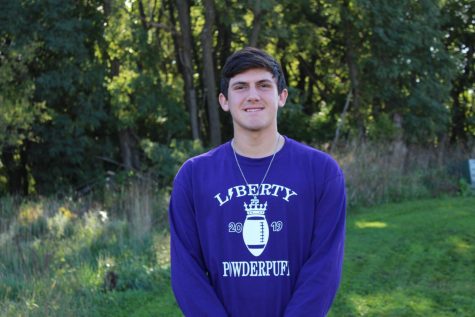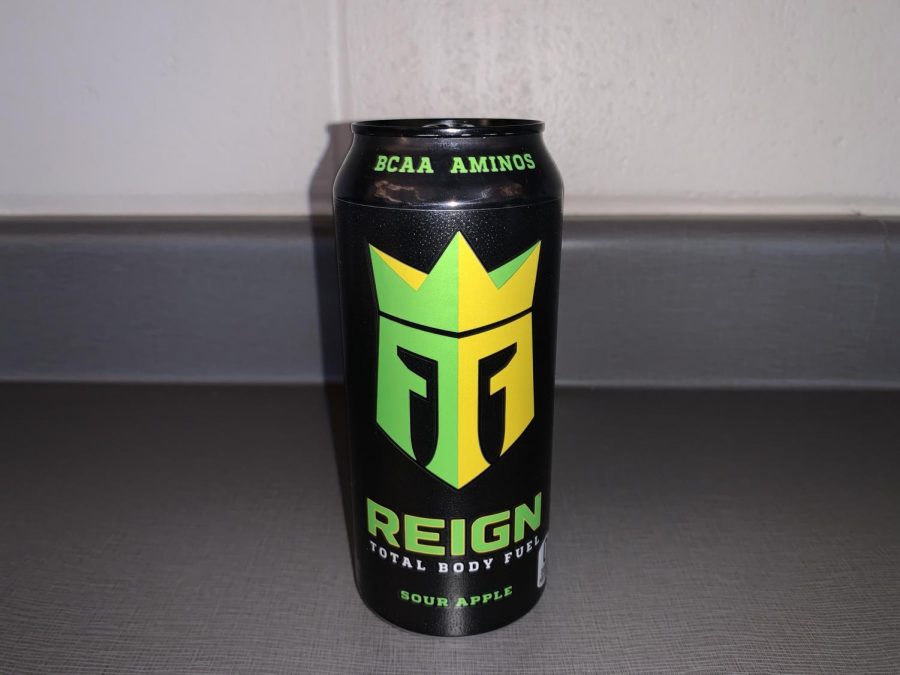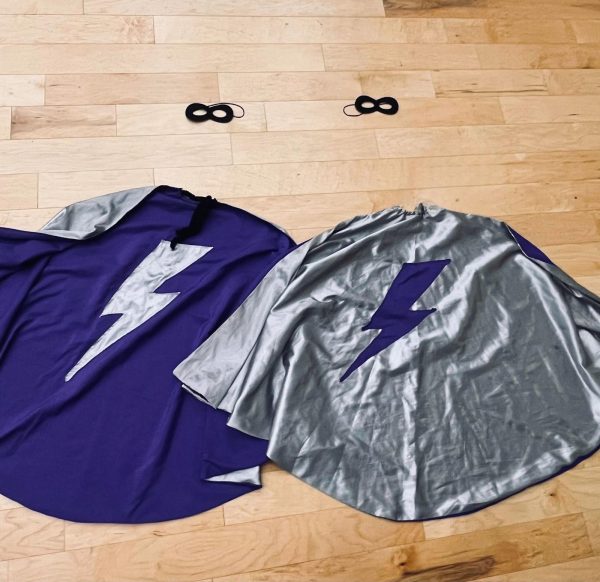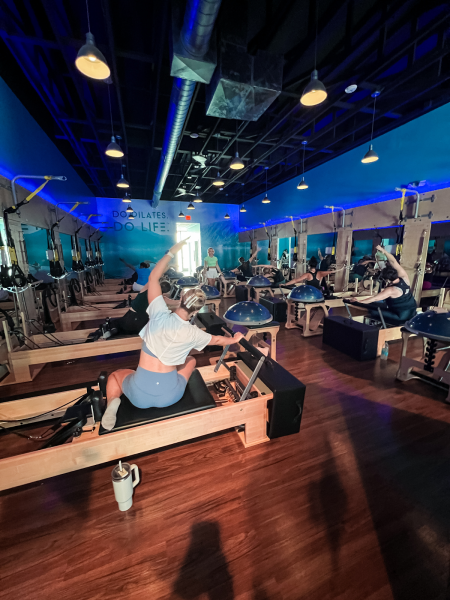Caffeine Crutch
Do you rely on a caffeine drink to get you through the day? Liberty students and staff note on the benefits and consequences that they experience from caffeine consumption.
Max Tafolla’s, junior, preferred energy drink is Reign. The boys on the newspaper staff collect the cans and display them in the journalism room.
According to the FDA, 80% of people in the US drink some form of caffeine every day. Rising as the number one most used drug, caffeine has become a staple in American culture. Either as a morning pick-me-up or a common ground to meet and talk, coffee has become the most popular energy drink. Other caffeinated drinks like Bang, Reign, Red Bull, and soda are disguised in sugar or sugar products, such as Sucralose, and are desirable by high school and college students alike.
What are the effects of caffeine? Is it really that healthy for young adults to intake it so frequently? We all know the benefit that comes with caffeine, as many use it for alertness and energizing, especially in the mornings when we tend to feel most tired.
Brody Fishman, junior, attests to his former addiction to caffeine.

‘Reign Tower’ that was put up in journalism room by Brody Fishman, junior, Max Tafolla, junior, and Zack Anderson, junior.
“[I] used to [drink caffeine] It used to be three times a week, but now I’ve limited myself to once a week, because I can’t always use it as a crutch when I’m tired,” Fishman said.
Being a part of the football team, Fishman, along with the rest of the team, is expected at early morning weights, and sleep can get decreased. If the same amount of coffee is consumed each day, a tolerance is built up.
“Towards the end of football season, I started drinking more when I had to wake up early for weights,” Fishman added. “At random times in the day, I would zone out and get really tired, but it got better when I started to limit myself to only one [drink].”
Once Fishman noticed that he was becoming dependent on the drinks, he decided he needed to take some action.
“Taking a step back I realized that this is really unhealthy and I shouldn’t be putting this much caffeine into my body,” said Fishman.
Beth Jaeger, sophomore, drinks a large coffee everyday.
“When I drink it, I’m ready to take on the day, and when I don’t, I feel groggy, more angry, and quick to snap,” explained Jaeger.
The same alertness that is experienced after a drink is not as effective when caffeine is taken out of daily routine. Some argue that after tolerance is built, while the desire for energy is still prevalent, addiction occurs. Even though side effects are minor, addicts are susceptible to symptoms such as headaches and drowsiness. People even rely on it to brighten moods and let it affect personality.

Nathan Oswald, Biology teacher, is an avid caffeine consumer. Drinking 400 mg of caffeine in one day is safe for most adults, which is four cups of coffee, two energy shots, and in some cases, only one energy drink. Once this limit is exceeded, it can start to cause problems. Reign, which is very popular among Liberty students, contains 300 mg of caffeine in one can.
“I drink 2-4 drinks a day, usually 2 coffees, a diet Mountain Dew, and a Spark every day,” said Oswald. “Milligram wise that’s 350-400 a day.”
He keeps a healthy lifestyle with it and always makes sure to follow his intake of caffeine with water.
Oswald takes his intake seriously and knows the benefits and the negative effects on his body that comes with drinking so much caffeine.
“I will continue to drink them, but a couple times, I have had a little too much caffeine and my heart gets beating too fast,” said Oswald.
Any amount of caffeine can lead to dehydration if not taken seriously. For every caffeine drink, hydration should follow. When too much is consumed without water, harmful symptoms can occur. Average body functions are harder to carry out, and sudden fits of sleepiness and even passing out can occur. Caffeine in high amounts can also lead to anxiety, heart palpitations, and jitteriness.
“I loved Coke and Mountain Dew growing up, and I remember being tired a lot in high school and college, and now I have kids. I have more energy than I’ve ever had in my life at 40,” stated Oswald.
Even with these dangerous side effects, many people have continued to drink caffeinated drinks and seek the benefits. Coffee can increase physical performance, help with certain health problems, and help burn fat with a small benefit being zero calories if drank by itself.
“When I don’t drink it, I do get tired; I feel like I don’t have that same energy,” said Oswald.
He also enjoys and recommends getting your heart rate up in a natural way like running or cardio for the same affect.
“I don’t usually drink caffeine before cardio, and once I start running, I’m fine. The chemicals and endorphins spike after a run,” said Oswald. “I’m not dependent on it, but I would miss it if I cut it out for a couple weeks.”
“I drink a caffeine drink everyday, usually a large vanilla iced latte, and red bull or soda,” said Jaeger. “I’ve always been able to drink soda when I was little, but i just started drinking coffee around two years ago.”
Oftentimes, kids are influenced by their parents habits.
“My mom would always go to Dunkin Donuts, and now I’ve been going everyday,” said Jaeger.
Too much caffeine isn’t a good habit to form, but everyone can appreciate a good wake-up drink in the mornings. As students, the addiction will only get worse. If you tend to depend on caffeine as a mood booster, consider going a week without it and see how it feels. It could even increase sleep quality. Try out a natural alternative for increasing alertness like cardio. Other supplements could include decaf, some teas, or sugary drinks like smoothies or gatorade.
“I might try to slow it down and not try to drink so heavily everyday,” Jaeger admitted.

Tessa Miller, senior, is a member of The Live Wire staff for the second year. Her hobbies include running and soccer and she is involved in numerous clubs...

Zack is a senior at Liberty, and this is his second year as a part of the Live Wire staff. He plays golf and baseball for the Bolts. He also participates...













